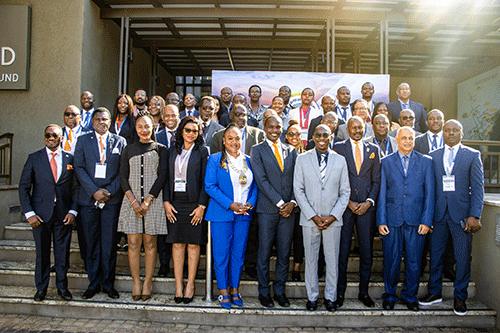SWAKOPMUND – Africa needs to tighten the noose on illicit financial flows, as it is one of the challenges hampering the continent’s economic emancipation.
This was said by Namibia Revenue Agency (NamRA) commissioner Sam Shivute during the opening of the World Customs Organisation East and Southern Africa Regional meetings underway in Swakopmund.
These outflows are of serious concern, given inadequate growth, high levels of poverty, resource needs, and the changing global landscape of official development assistance.
Although African economies have been growing at an average of about 5% a year since the turn of the century, this rate is considered encouraging but inadequate.
Twelve African countries have started a pilot project to determine how much they are losing in terms of illicit financial flows, one of the critical challenges Africa faces. According to Shivute, Africa loses billions annually through illicit trade, thereby hampering economic advancement.
The illicit financial flow from the African continent is significant. According to the 2015 Thabo Mbeki report, the continent loses US$50 billion (N$950 billion) annually.
The Global Financial Integrity report estimates this amount to be as high as US$89 billion (N$1.69 trillion) annually.
“Such amounts could significantly boost local economies if retained within the continent. The persistence of these flows indicates a need for comprehensive measures to stem them. Hence, I want all African countries to also determine how much we are losing on an annual basis because you cannot measure what you do not know, and you cannot manage that. So, let’s put our hands together,” Shivute said.
He added that 12 African countries are currently conducting a comprehensive study to estimate how much they are losing through illicit financial flows. According to him, illicit financial flows sometimes occur in the areas in which customs operate, and they have the power to stop this by working together with domestic taxes and law enforcement.
Shivute emphasised that Africa cannot talk about economic emancipation without addressing illicit financial flows.
“We cannot talk about achieving economic emancipation for our continent while these flows continue,” he said, adding that issues such as mis-invoicing, tax evasion, and corruption contribute to illicit financial flows.
The pilot project with the 12 African countries aims to measure and understand the real extent of these financial outflows.
“For Africa to achieve the Sustainable Development Goals by 2030, robust revenue administration is essential. Customs administrations play a crucial role in protecting societies and economies from illicit activities and facilitating trade, which is vital for economic growth. Given the current global economic outlook, characterised by funding squeezes and geopolitical tensions, African countries must strengthen domestic resource mobilisation to achieve national development programmes. Addressing illicit financial flows is a critical part of this effort,” he stressed.



